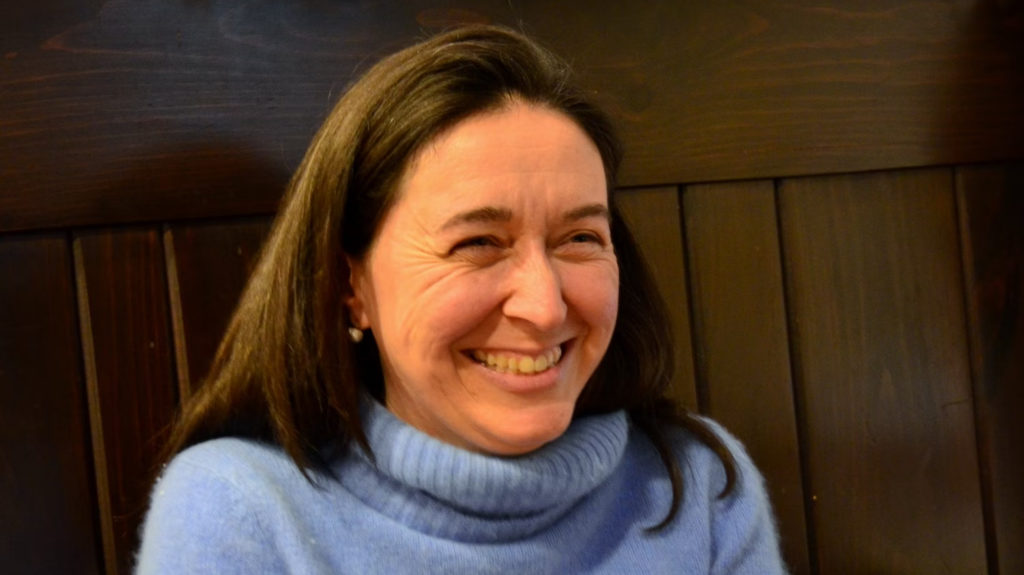Every so often I stumble upon a book that gives a name to a part of my life I didn’t even know had a name.
“Lost in Thought: The Hidden Pleasures of Intellectual Life” (Princeton University Press, $23.95) is a prime example.
Author Zena Hitz is a tutor in the great books program at St. John’s College, a secular “great books” school, in Annapolis, Maryland.
A Catholic convert, she explores such meaty topics as time, work, and rest.
“The leisure that is necessary for human beings,” she observed in a recent Plough essay, “is not just a break from real life, a place where we rest and restore ourselves in order to go back to work. What we are after is a state that looks like the culmination of a life.”
Hitz grew up in a family where intellectual exploration was seen as a good in and of itself, rather than as a means to an end. Her parents were both book lovers, “amateurs in the best and original sense of the word.” Informal road trips to the beaches and mountains of Northern California were undertaken with the unspoken credo that “the standard for success of an activity was enjoying oneself in fellowship with others.”
She enrolled in St. John’s, the small East Coast college where, after several twists and turns, she would later teach.
At the time she and her fellow students assumed that “books mattered for life.” Nonetheless, having figured out that study “without visible results or high-prestige credentials was enormously useful for other ends,” many of her classmates went on to careers in business, politics, and the law.
Hitz, by contrast, became an academic in classical philosophy. Initially excited and energized by the course work, she soon threw herself into the brutal competition for status and prestige that marked her milieu. She learned to backbite, lord it over, and publicly humiliate.
But when the Twin Towers fell in 2000, something collapsed in Hitz as well. She felt an uncharacteristic urge toward kindness. She began to ask questions like, “What was the point of studying philosophy and classics? What conceivable difference could it make in the face of the suffering world?”
She landed a tenure-track job at a large university in the South, and started to meet people who up till then had remained far outside her social and academic circles: refugees, elderly factory workers, those dying in hospices.
“I began to see that human suffering was not limited to special events and that it could not be ended by reversing particular policies. … Suffering was a cosmic force, an ever-present reality, Christ crucified at the heart of the world. … I began to seek it out, to force myself into regular contact with it.”
She decided to become a Catholic.
But what was her vocation now? Hitz wondered.
“Never short on self-esteem, I was sure that God would want me to do something quite unusual. … I figured I could live in a poor neighborhood as a sort of Catholic anarchist, teaching Greek and Latin out of my living room to the locals.”
Instead, she sold her car, gave away her furniture, put her books in storage, and for three years lived under obedience at Madonna House, a Catholic lay community in Combermere, Ontario, founded by Servant of God Catherine de Hueck Doherty (1896-1985).
The life is rigorous: no internet, virtually no time alone. “All that was permitted to me was a full, ordinary human life: work, service, friendship; leisured time in nature … lovingly prepared liturgical celebrations.”
Hitz saw the profound value in such a life. At the same time, she thought hard about the point of higher learning. She began to realize she was stifling her deepest desires and gifts. She began to think of returning to the small college that had first nurtured her thirst for learning, for asking the deep questions, for pondering the works of those who have asked those questions before us: Homer, St. Augustine, Dante, Dostoevsky.
She realized that throughout time and history there has been a huge unremarked upon body of “ordinary people — library users, taxi drivers, history buffs, prisoners, stockbrokers — doing intellectual work without recognizing it as such or taking pride in it.”
“Lost in Thought” celebrates such people. People who participate fully and responsibly in life but, left to their own devices, immediately shut the door and curl up with a book.
William Herschel and his sister Caroline, for example, 18th-century amateur astronomers who built a telescope through which William discovered the planet Uranus. Russian dissident prisoners who scratched poems into bars of soap with matchsticks and memorized them before washing them away. J.A. Baker, an Englishman with a day job who, crippled by arthritis, obsessively followed falcons for 10 years and wrote “The Peregrine” (1967), today considered a classic of nature writing.
“Intellectual activity nurtures an inner life,” sums up Hitz, “a human core that is a refuge from suffering as much as it is a resource for reflection for its own sake. There are other ways to nurture the inner life: playing music, or helping the weak and vulnerable, or spending time in nature or prayer — but learning is a crucial one.”

